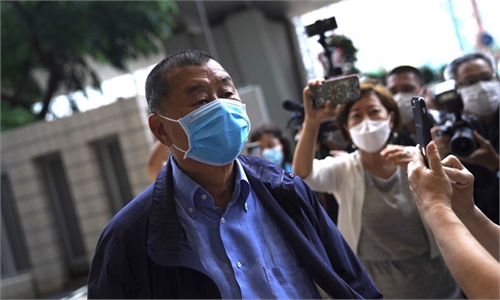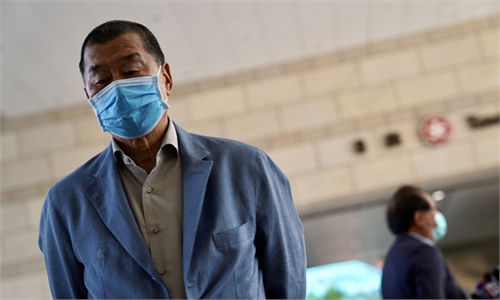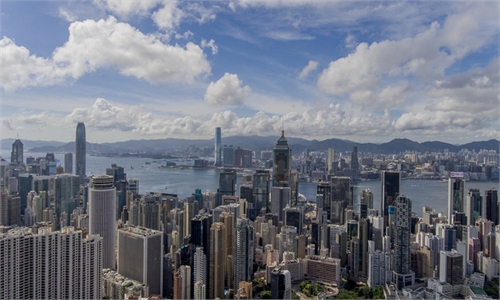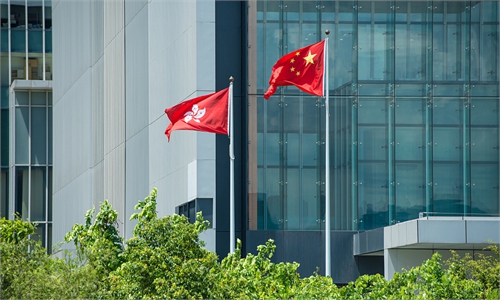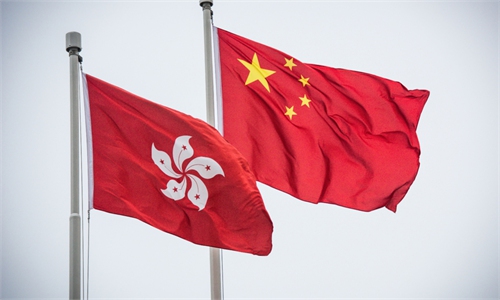HK embraces National Security Education Day, still faces threats like 'lone wolf attacks' by radicals
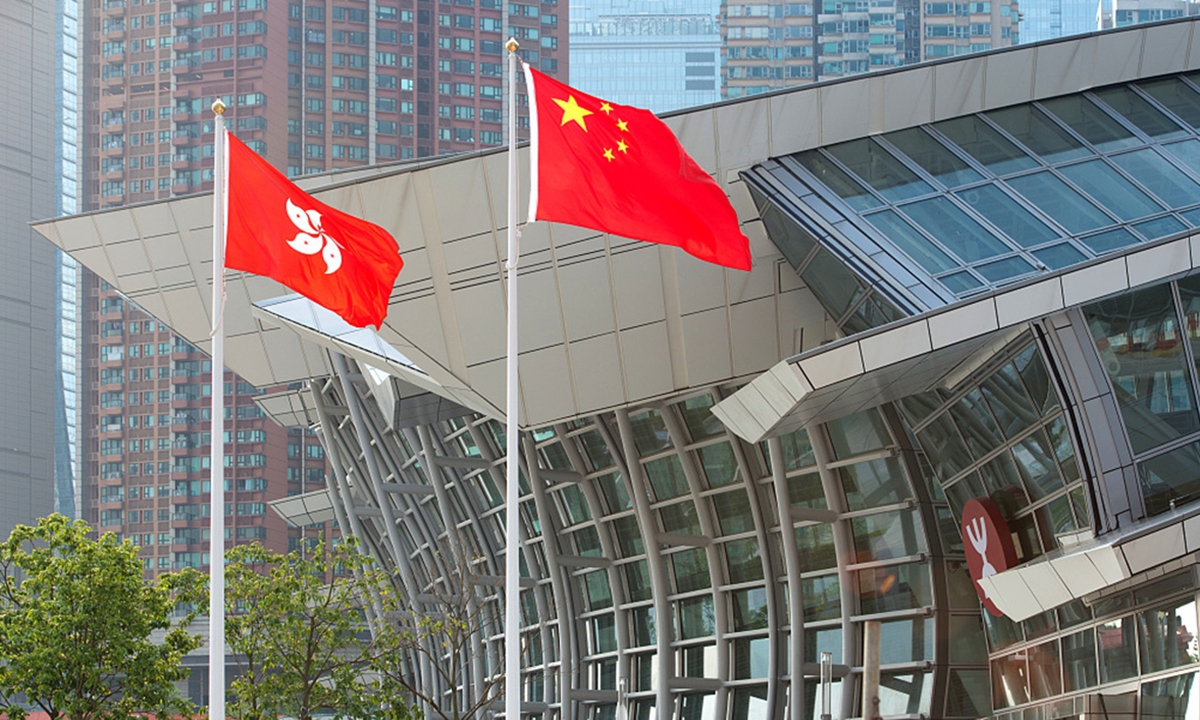
Hong Kong photo: VCG
Hong Kong will embrace the National Security Education Day on Thursday for the first time with a number of activities to promote public awareness about national security as the city, once hit by black-clad protests and riots, is stepping up efforts to fix the local governance loopholes while enhancing education of the young generation to eradicate radical ideas brought by misunderstanding about the country.
The National Security Education Day, the first since the highly anticipated national security law for Hong Kong took effect last June, comes as the city is accelerating local law amendments in meeting the essential requirements of electoral reform. Both the national security law for Hong Kong and the ongoing electoral reform play a fundamental role of sweeping out secessionist and subversive forces, saving the city from the cliff of "color revolution" - a major risk the Chinese government has vowed to fend off for the country's overall security.
An opening ceremony for unveiling the first National Security Education Day is scheduled to be held on Thursday morning at the Hong Kong Convention and Exhibition Center with the participation of local officials and officials from the central authorities. Also, the five disciplined services in Hong Kong will hold open-day activities to help local residents increase their awareness of safeguarding national security and improve public understanding about their work.
Some posts circulating on social media showed that stickers and bookmarks depicting the idea of "upholding national security" have been distributed to the public, and local schools are also expected to hold various activities such as flag-raising and national anthem ceremonies in underscoring this subject.
Prior to the national security law for Hong Kong, Hong Kong society lacked an institutional bottom line to guard against national security threats, leading some people to endanger Hong Kong's security through various activities, Li Xiaobing, an expert on Hong Kong, Macao and Taiwan affairs at Nankai University in Tianjin, told the Global Times on Wednesday.
"The introduction of the national security law has helped restore this bottom line, but the acts endangering national security are more insidious in their political activities," Li said. "They have long infiltrated Hong Kong politics at various levels, hindering normal political activities and paralyzing the political system for a long time."
This problem cannot be solved through Hong Kong politics itself, and Li noted that introducing Hong Kong electoral reform is the only way to solve this problem once and for all.
"I believe everyone here still remembers the chaotic scenes in recent years. LegCo [the Legislative Council] was paralyzed by opposition groups, policies related to people's livelihoods were delayed, and Hong Kong faced a governance crisis. We all experienced a sense of powerlessness," Secretary for Constitutional and Mainland Affairs Erick Tsang Kwok-wai said during the first and second readings of the amendment bill for Hong Kong electoral reform at the LegCo on Wednesday.
Senior officials and authorities on Hong Kong affairs have already pointed out that the months-long violent protests in Hong Kong in 2019 had obvious characteristics of a color revolution. Some Western countries like the US and the UK interfered in Hong Kong affairs, colluding with local political figures in order to paralyze local governance, giving aid to their own agents in representing the interests of the West in Hong Kong. This was indeed a playbook of a color revolution and of subverting state power, observers said.
"From now on, only patriots or people with recognized patriotic qualities are legally and politically eligible to participate in Hong Kong's elections," Lawrence Ma, barrister and chairman at the Hong Kong Legal Exchange Foundation, told the Global Times on Wednesday, commenting on the Hong Kong electoral reform bill being officially introduced to the local legislative body with the overall overhaul expected to be finalized by May.
Radical and extreme opposition figures, who occasionally worked closely with foreign countries' representatives or begged for foreign sanctions on the HKSAR and the central government in the past, now have no room to continue taking part in local political life. Electoral reform effectively screens out those who fail to meet the basic requirement of "only patriots governing the city," observers said.
However, there is much work to do in order to further enhance public awareness in Hong Kong about national security, local officials and experts said.
Secretary for Security John Lee Ka-chiu told the media recently that although the national security law for Hong Kong helped restore social order, the city still faces two major national security risks.
Some advocating for "Hong Kong independence" have not abandoned the pursuit. They continued spreading such an idea through newspapers, internet and films.
Meanwhile, some radical figures with extreme ideas have become "chess pieces" for foreign countries and may adopt "lone wolf attacks."
Hong Kong has already made a lot of efforts in national security education, such as revising incorrect textbooks and setting up security education bases. However, there is still a need to make the wider section of Hong Kong youth understand the major challenges that Hong Kong and the country are currently facing.
Li pointed out that while currently secessionist voices in Hong Kong's political arena are largely under control, there is still infiltration in all aspects of the economy and culture.
"More measures promoting national security awareness can be taken in areas where Hong Kong has traditionally excelled, such as including relevant themes in movies and inviting celebrities to serve as ambassadors, which can better appeal to young people," Li noted.

